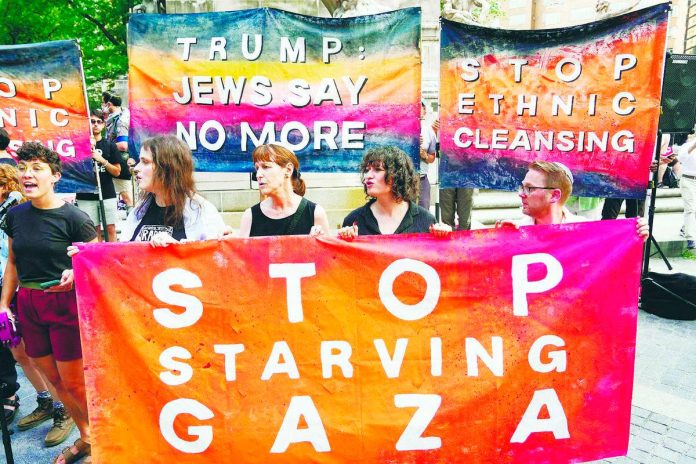IT is deeply saddening that amidst the war and destruction currently unfolding in Gaza, some individuals continue to view the conflict through narrow ideological lenses. Rather than acknowledging the immense suffering of ordinary people in war zones, they choose partisanship over humanity.
This is evident both in political discourse and on social media, where some justify their positions with long-held communal prejudices.
We hear dangerous claims, such as “Palestinians are troublemakers rejected even by the Arab world”, or distorted interpretations of religious texts asserting that modern Israel has an unquestionable right to Palestinian land.
Others blame Hamas for igniting the current conflict, while ignoring the broader context of decades-long occupation and blockade – issues that long predate Hamas’ existence.
Meanwhile, as starvation and relentless bombardment devastate Gaza, many politicians, ideologues and commentators seem to lack even basic empathy and compassion. Instead of prioritising human dignity, they instrumentalise conflict on a partisan basis, leaving no room for genuine concern for the lives at stake.
Let us not forget that both Palestinian civilians and Israeli hostages are human beings deserving of dignity, safety and peace. What they urgently need are conditions that allow humanitarian aid to flow unimpeded and a political climate that favours peace over continued violence.
To truly grasp the severity of what is unfolding, one must try to imagine being in the shoes of a family in Gaza: children orphaned, mothers helpless to feed their starving children and families walking kilometres in search of food and water.
Recently, I watched an interview by American conservative commentator Tucker Carlson with US army veteran Anthony Angular. He recounted a heartbreaking incident involving a young Palestinian boy named Amir, who was seeking food at a distribution point operated by the so-called Gaza Humanitarian Foundation – an entity overseen by Israel and the US.
According to Angular, Amir, visibly frail from hunger or illness, kissed his hand in gratitude upon receiving food. Tragically, not long after, the boy was shot and killed by the Israeli Defence Forces as he exited the area.
Such brutality transcends political affiliation or ideology. It should have prompted immediate, decisive action from the international community.
Declaring a Palestinian state is not enough. The violence must end through concrete political and economic measures, driven by empathy and compassion. These are not sentimental ideals; they are practical necessities for building peace.
True peace begins in the hearts and minds of individuals – with compassion for families, neighbours and for the wider human family. Only when empathy replaces indifference and justice replaces prejudice can we hope to see lasting peace.
Ronald Benjamin
Secretary
Association for Welfare
Community and Dialogue







